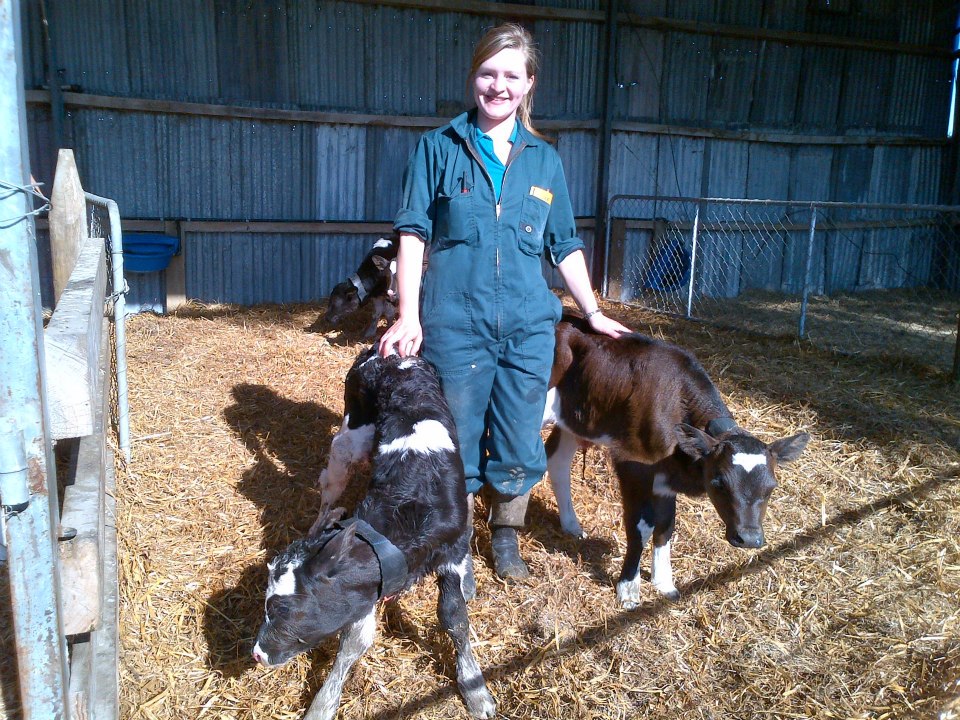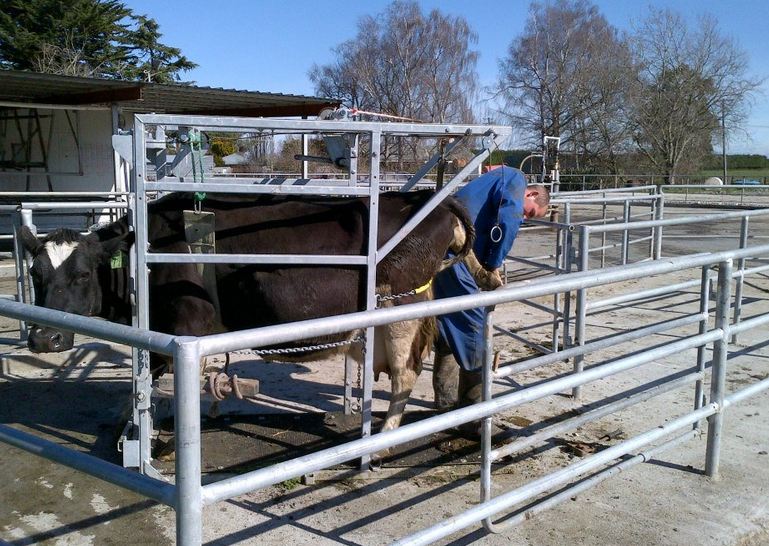



Share-milking in New Zealand: Making the Most of the Dairy Boom: Part One
NEW ZEALAND - A young North Yorkshire couple opted to start married life in the fast lane when they took a chance on a share-milking arrangement in New Zealand last year.Robert and Rachel Morris moved to Ashburton on the South Island of New Zealand last summer after being tempted by the prospects of the ever expanding Kiwi dairy industry.
“It was the scale of the farming that first attracted me,” says Rob. “Herds of 1,200 are not uncommon out here and our 800 cow operation is probably an average size for our area.”
Now 28, Rob initially whet his appetite for share-milking at the age of nineteen when he took a 12 month work placement on an Agriventure scheme.

His placement was a success and Rob ended up staying for 30 months, allowing his current landlords Bill and Lynwen Morgans to show him the ropes.
“They gave me the encouragement I needed to start share-milking,” says Rob. “Sometimes nerves and caution make you wait but the Morgans gave us a lot of support and advice to help us get started.”
“Support is vital in the early days as money can be tight. We use a typical grass based New Zealand system and that means we block calve, so the initial milk cheques are never that strong.”
“Additionally, no money comes in during June and July and this means problems with cash flow.”
What a Share-milker Does
The share-milking contract depends entirely on what the owner and share-milkers decide. This dictates how profits and costs are divided.
The Morris’s are considered ‘lower order share-milkers’, meaning they take a relatively small cut of profits and subsequently have low outgoings.
Rachel says the arrangement suits both parties, with the Morgans looking to travel a little while keeping a farm as their son studies at college.
“The Morgans are the land owners and also own the cows,” says Rachel. “This is their only farm now.”

“By having Rob and I share-milking it means they are not tied to the farm for day-to-day running.”
“Bill and Lynwen still have a major role in running the farm and are always happy to offer advice.”
Currently, all the Morris’s pay for is labour, motorbikes and milking parlour running costs.
However, a neighbour of the Morris’s has opted for a greater profit share but has to finance tractors and fertiliser.
“It is very rare for someone to be on the same agreement as you,” says Rob. “You can change depending on your needs – opting for low outgoings made sense for us.”
As well as lots of flexibility, progression can be rapid and Rob has observed a pattern of promotion for young farmers after they leave school.
Working up from a junior farm hand and then through intermediate grades, people can be a herd manager by the time they are in their early to mid-twenties, says Rob.
“In New Zealand, if you are keen and you want to work hard you can get far,” he explains. “Age doesn’t hold you back - there are several lads nearby who are share- milking in their early twenties.”
Land of Milk and Money
But as well as New Zealand appearing attractive, the duo found the British dairy industry a little short of opportunity.
With Rachel being brought up on a beef and sheep farm and Rob without farming in the family at all, the chances of running a dairy farm in England were slim.
“The main reason I chose to live over here was for the stepping stones to progress and run my own business,” explains Rob. “All I could hope for back in England was to be a herd manager.”
*
"Because milk is all dried and sold as milk solids, it opens up a global market for us over here."
Having applied for herd manager positions around Britain, Rob found that his youth was holding him back, with herd management roles exclusively for more experienced stockmen.
While dairies close in England every year and the country produces under quota, New Zealand’s dairy sector now boasts a production level 77 per cent higher 20 years ago.
Now with more cows than people, New Zealand exports 97 per cent of the milk it produces, allowing processors to dry milk as powder to be shipped to emerging dairy markets such as China, says Rachel.
“Because milk is all dried and sold as milk solids, it opens up a global market for us over here,” she explains. “Dairies work on a share basis and for every milk solid you produce you have to buy one share.”
Split Enterprise
The Morris’s 800 cow herd is split roughly in two over 220 hectares and milked as two separate blocks, each one providing milk for their two customers - Westland and Fonterra.
Both are cooperatives, although Fonterra dwarfs the rest, accounting for 85 per cent of milk produced in New Zealand annually.
“When the second milking parlour went up on our farm it was decided that Westland would be tried as well, meaning that our risks were shared a little,” says Rachel.
Having two dairies also means that cows have walking time reduced, with Rachel and Rob able to switch cows to different dairies as fit.
“We don’t say ‘this cow is a Westland cow, this one is a Fonterra cow’,” says Rachel. “Cows are moved across depending on body condition or feed availability.”
With milk in such demand from abroad, the Morris’s are not alone in wanting to join the dairy boom. Many sheep and beef farmers are converting to milk.
“Driving around our local area you can see loads of farms converting to dairies,” says Rob. “You stop and you think that there’s no way that can be a dairy farm.”
Farm Facts
- Size: 220 hectares
- System: Grass-based, block calving
- Herd: 800 cows
- Management: Two parlours - roughly 400 cows each
- Cow Breed: Kiwi Cross, Friesian, Jersey
- Breeding: A.I. + Sweeper Bull
- Supplying: Fonterra and Westland Milk Products
- Staff: Rob, Rachel, 3 full time workers and two seasonal relief milkers
Michael Priestley
News Team - Editor
Mainly production and market stories on ruminants sector. Works closely with sustainability consultants at FAI Farms



